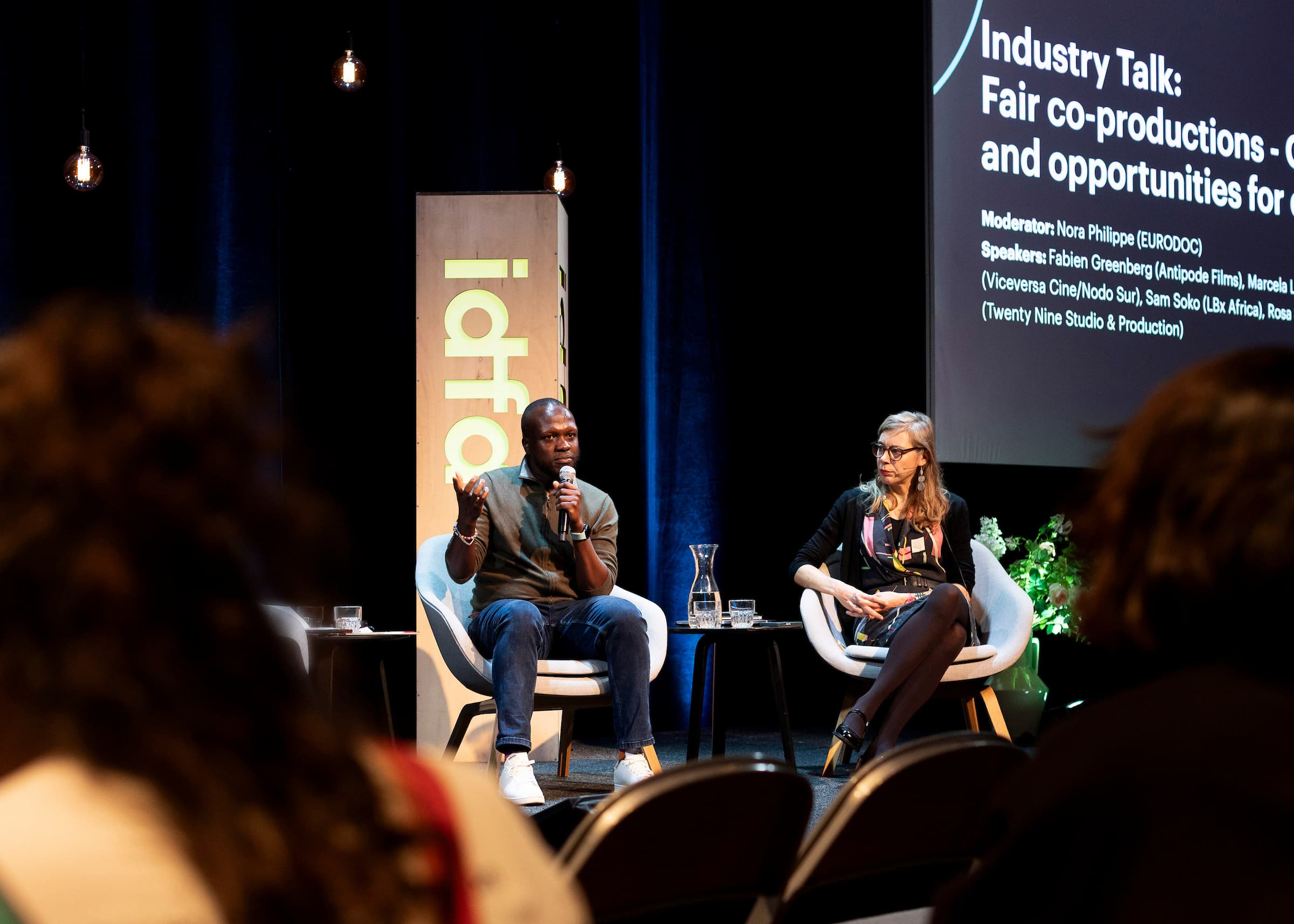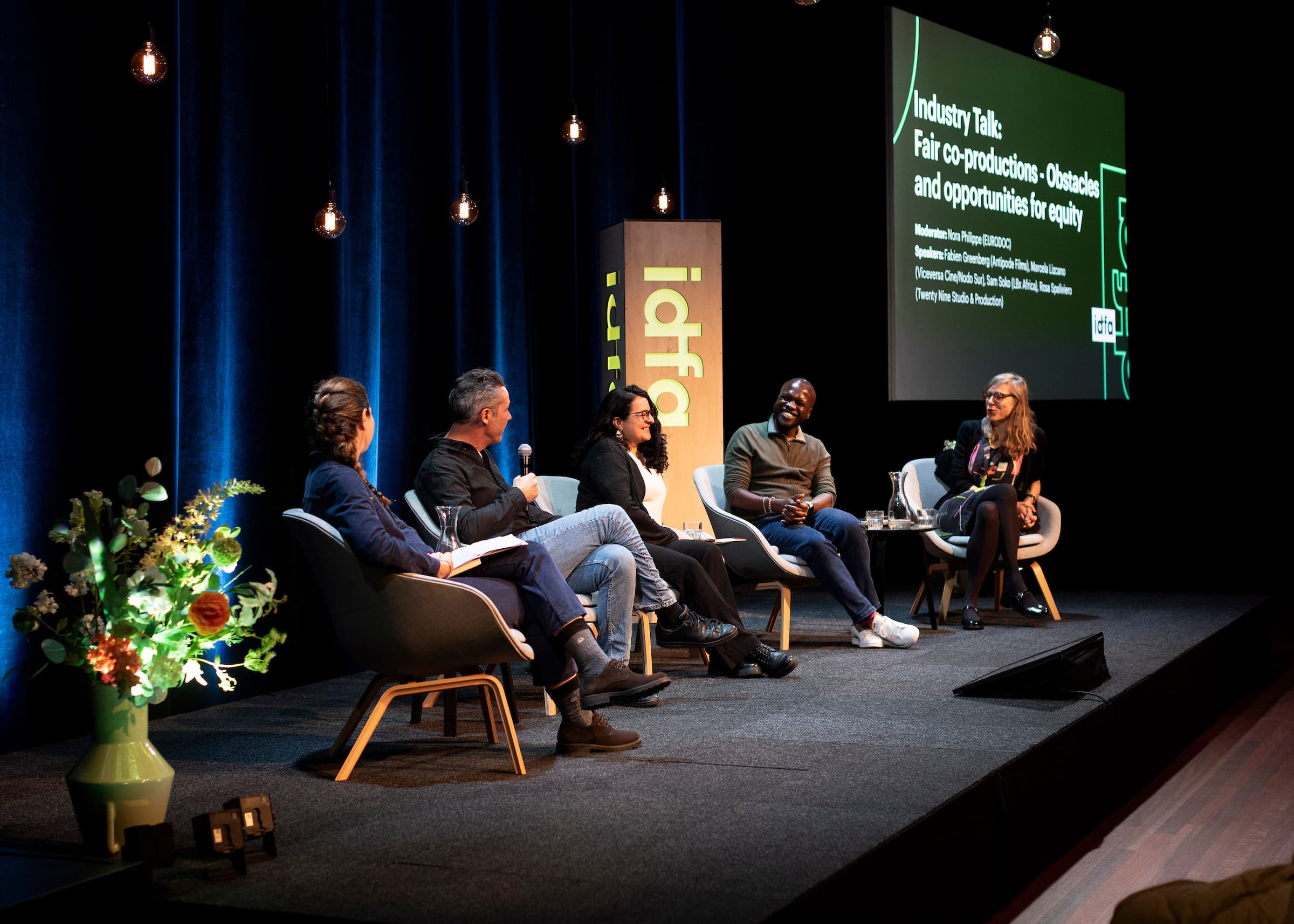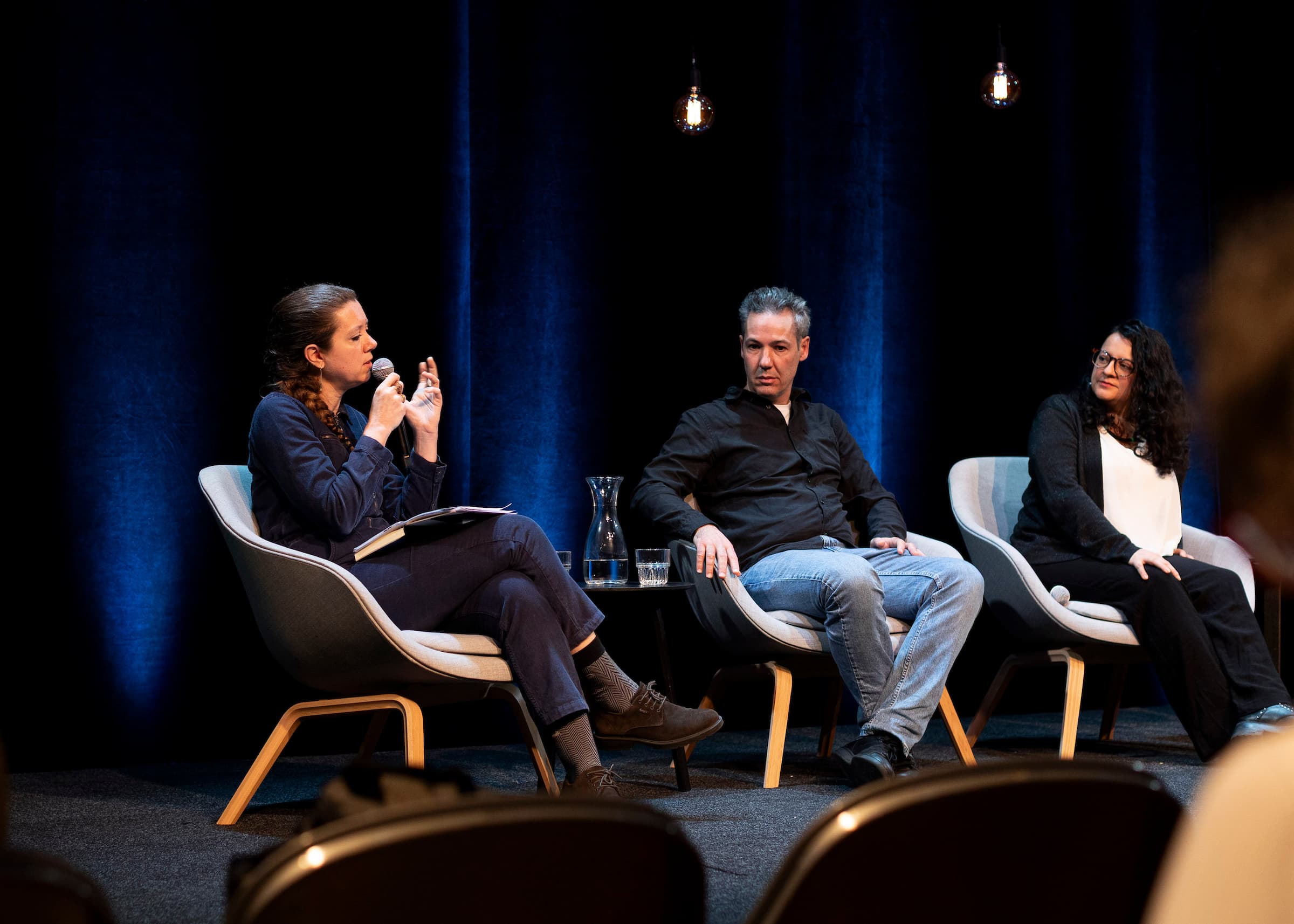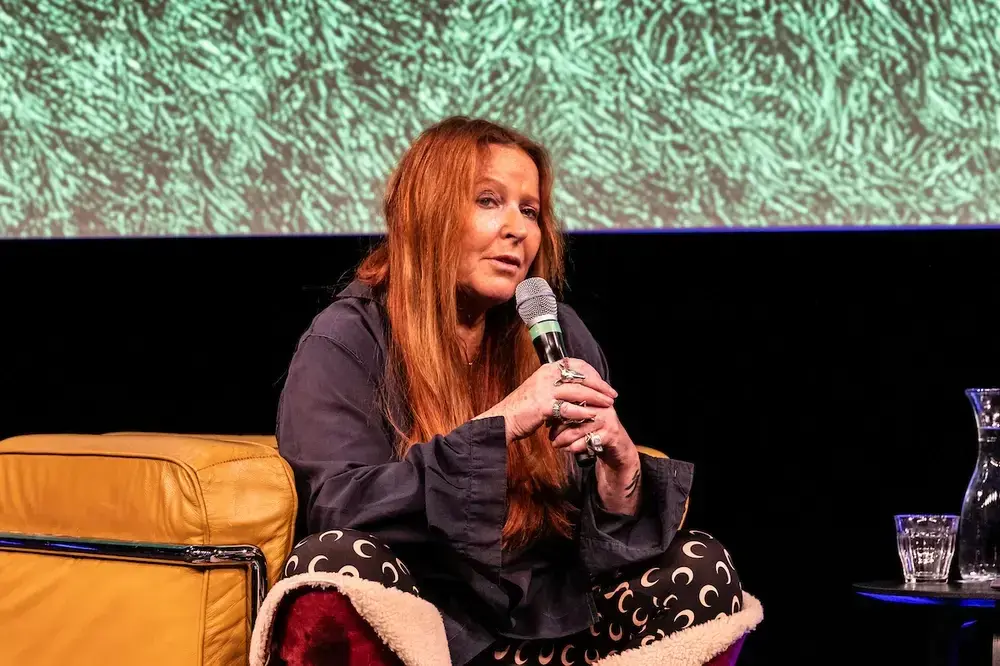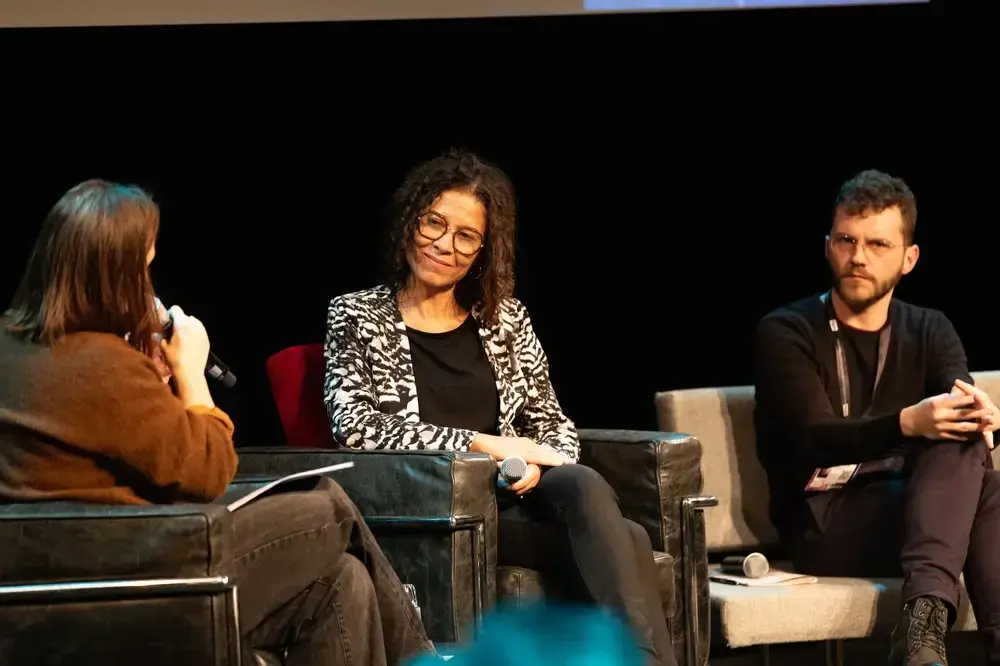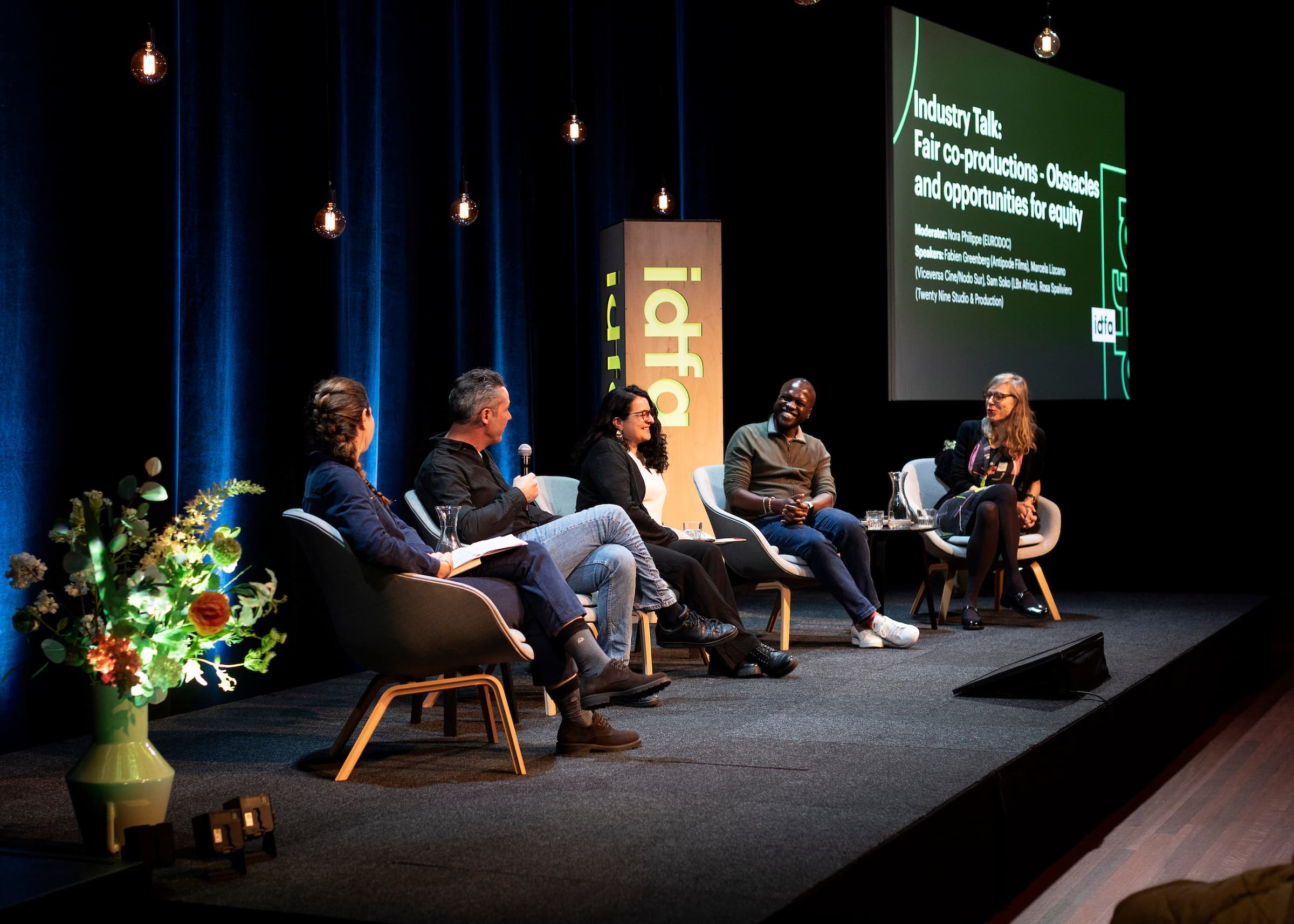
Industry Talk: Fair co-productions
True fairness demands more than good intentions, as EAVE’s 2025 report on inclusive co-productions reminds us. So how can we implement practices that prioritize equity in co-productions?
This was the central question of the panel on November 16, featuring producers from Africa, Europe, and Latin America. The Industry Talk: Fair co-productions - Obstacles and opportunities for equity was moderated by head of EURODOC Nora Philippe, and joined by Sam Soko (LBx Africa), Rosa Spaliviero (Twenty Nine Studio & Production), Marcela Lizcano (Viceversa Cine/Nodo Sur), and Fabien Greenberg (Antipode Films).
Industry Talk: Fair co-productions - Obstacles and opportunities for equity
The co-founder of LBx Africa, a Nairobi-based production company committed to amplifying African voices, Soko emphasized the need to “build trust” and nurture national and regional co-productions, rather than seeking interest from external players. The way the funding system is currently built, he argued, “is based on the same aid model that shapes the relationship between African countries and the rest of the world,” which in turn affects the type of narratives typically favored by funders and those that ultimately reach the screen. Soko recalled that when producing Nyasha Kadandara’s debut feature documentary Matabeleland (at IDFA 2025, IDFA Bertha Fund 2024), a Kenya-Zimbabwe-Canada co-production, which centers on a Zimbabwean immigrant in Botswana, they faced numerous rejections while raising funds for the film, as many funders sought a more political angle, which neither would have aligned with the director’s vision nor speak to local audiences in a meaningful way. Another outcome of this “skewed” model, he noted, is that the film, which premiered at CPH:DOX earlier this year, has struggled to get into festivals outside Africa. Yet it has strongly resonated with local audiences, leading to sold-out screenings despite the initial apprehensions.
Belgium-based Spaliviero, of Twenty Nine Studio, has frequently collaborated with African filmmakers, “choosing to be a minority producer.” While working on Liti Liti (The Attachment at IDFA 2025) by Senegalese helmer Mamadou Khouma Gueye (who was also in attendance), she joined forces with Dakar-based producer Aminata Ndao of SINE FILMS, which proved crucial for a number of reasons, including securing Senegal’s national funding, FOPICA, which accounted for 25 percent of the budget. During the Talk, Spaliviero also questioned the rigidity of standard pro rata terms of co-productions, noting that they managed to negotiate them in this project. She also pointed out that the team comprised 17 Senegalese collaborators, three from Belgium, and one from France, adding that she has worked not only with Gueye but also with a longstanding collective of local filmmakers who make films under trying conditions.
Building on this discussion, Philippe noted that a co-production, involving several interconnected components, such as “money, ownership, and responsibility,” must also include “impact” in the plurality of its forms. Lizcano (Simón Uribe Martínez’s Grounded at IDFA 2025)—who leads the Bogotá-based creative production house Viceversa Cine along with an initiative focused on advancing films’ social impact across Latin America, Nodo Sur—reflected on their work on Carlos Lesmes’ A Loss of Something Ever Felt (2020), a rare joint co-production between Estonia, Colombia, and Sweden.
Because of the urgency of its subject matter (driven by the Estonian protagonist’s search for her missing brother, who was battling drug addiction in Bogotá), the team bypassed the traditional route of applying for funding or completing a pre-production phase, “putting all their equipment, time, and emotional support” into it, with no production funding acquired at the time in Colombia. However, as Lizcano noted, their efforts as a co-producer focused on distribution and impact strategies, rather than production. “Often, this is considered outside the framework of co-productions, but it shouldn’t be,” she detailed. “What are our priorities? This is something you need to discuss with potential co-producers. Maybe the priority isn’t to get into Venice or Cannes, but to reach the affected communities and do the necessary work there.” She added, “You have to make decisions in distribution that really reflect that motivation.”
Greenberg, of Norway-based Antipode Films, has a long history of international co-productions, including with Iranian filmmaker Firouzeh Khosrovani on Radiograph of a Family and Past Future Continuous (IDFA 2025). Echoing IDFA’s Artistic Director Isabel Arrate Fernandez’s introductory remarks, Greenberg stressed the importance of being “clear” from the outset about collaboration, expectations, and the working model, and urged his European colleagues not to be “passive co-producers” but to enter a co-production out of genuine belief in the project, beyond mere financial considerations. Reflecting on his work with Khosrovani on Past Future Continuous, he recounted their efforts to secure funds in Europe while ensuring she was the film’s main producer, which she expressly preferred in this project.
The Talk rounded off with the speakers’ discussion of South-South collaborations and the need for “a lot of unlearning” to avoid replicating harmful systems in local film teams, as well as the adequate recognition of non-fiscal contributions in co-productions, such as creative involvement and knowledge of the communities.
